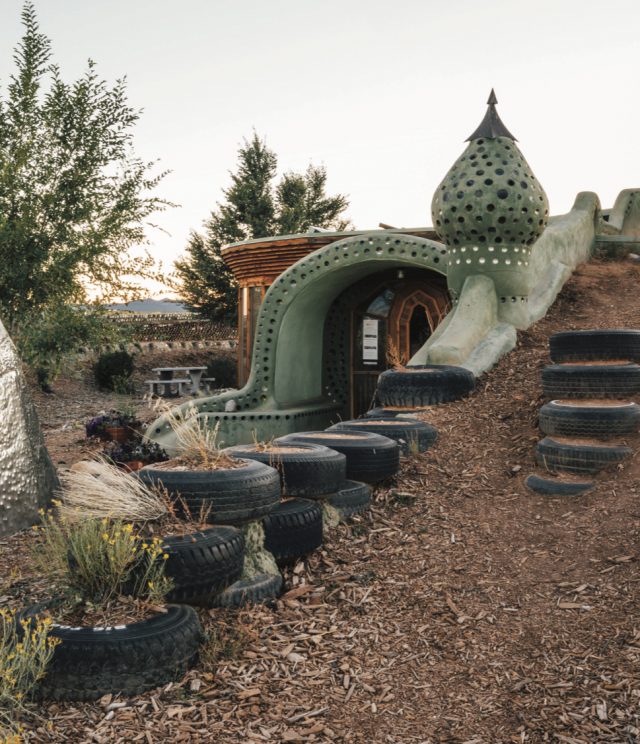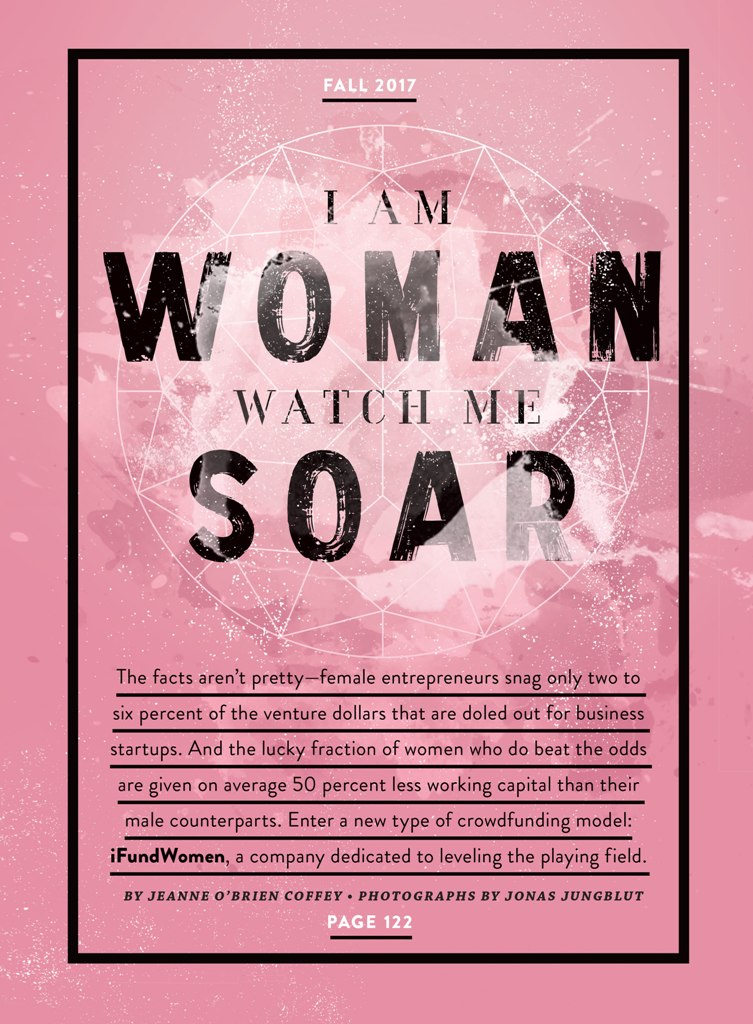 122-129 IFUNDWOMEN SHIP.indd
122-129 IFUNDWOMEN SHIP.indd City Farm Co.
Growing a locally sourced brick-and-mortar restaurant Owner/Operators: Chef Lakendra Davis and Shavone Holt
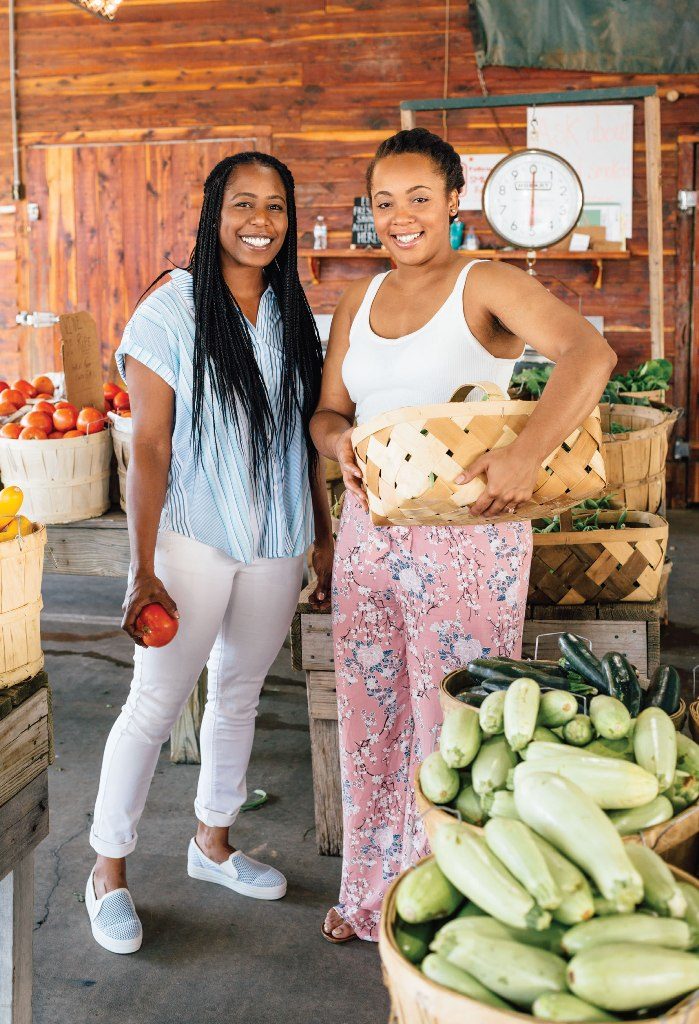
When Shavone Holt and her business partner/fiancé Lakendra Davis started researching funding options to open a brick-andmortar expansion of their popular contemporary Southern food pop-up, they noticed that the well-known crowdfunding platforms didn’t have much reach for them. “We were reluctant to use Kickstarter because it was more of a whitemale-focused crowdfunding group,” Shavone says, noting that iFundWomen felt more inclusive. And as much as she and her partner would prefer to focus on just making great locally sourced food, like buttermilk mac ’n’ cheese or biscuits and lamb gravy, the fact that they are women of color is a factor. It shows up daily in a variety of ways, from having less access to capital to comments by the business professor who, in the most sincere way possible, asked how they managed to “cross over” and have so many white customers. “There’s a bit of offense there, but there is also a bit of gratitude for the acknowledgement,” Shavone says. “We don’t make decisions because we are women or because we are women of color, but it does affect our business when people automatically place us as a women-owned black business. It takes us off the playing field.”
Karen Cahn, Founder: iFundWomen
Karen Cahn’s fi rst start-up was a failure—a big one. But from those ashes arose iFundWomen, a crowdfunding platform for female entrepreneurs. “We didn’t fail fast and cheap, we failed long and expensive, and it’s okay,” says Karen, who launched the platform with partner Sarah Sommers in 2016 on the heels of shuttering VProud, a social network for women. Now Karen, who has worked at digital giants like Google and YouTube, sees her mission as helping other women to learn from her mistakes—starting with crowdfunding, which taps an entrepreneur’s existing network of supporters, asking them to give a small amount of money toward a specific business goal to test concepts and raise capital.
“There is nothing worse than having a failed start-up and then having to pay back a bank loan on top of that,” Karen says. Skipping the big bank in favor of asking people in your social network for seed money limits exposure while letting you test the waters, taking baby steps toward a fuller launch. It’s something she and her partner learned the hard way—their crowdfunding campaign was the most successful part of the first start-up, but it was too little, too late. “We’re here to say, we did this backwards, but you don’t have to do it backwards,” Karen says. With a mission of closing both the funding and confidence gap women entrepreneurs experience, iFundWomen uses a three-pronged strategy, combining crowdfunding with access to coaching, mentoring and role models.
This format acknowledges the disadvantage female entrepreneurs face, starting with a lack of access to capital. While women are starting businesses at a rate of about 1,100 per day in this country alone, Karen notes that women generally launch with half the capital of a man. And in the venture-funding world, only two to six percent of cash goes to women. It’s even tougher for women of color—they are the fastest growing entrepreneurial segment in the country, but get less than a quarter of one percent of venture funding. “The people that have the money and power in this world are white men,” Karen says. “People are tribalists—whether it’s conscious or unconscious bias, they prefer people who look like them. There aren’t enough female role models in high enough places.”
The concept is taking off —in the first seven months of operation, iFundWomen helped 100 companies raise $650,000 in cash. What sets iFundWomen apart from other sites like GoFundMe and Kickstarter is free coaching along with chat rooms for collaborating and asking for advice. e site also offers a variety of paid services, including video production and more individualized coaching. In a kind of virtuous loop, 20 percent of fees collected are invested into campaigns on the site.
While women across the country can use iFundWomen, Karen launched the platform with an intensive focus in Nashville, and plans to grow the business with hubs in a number of other cities. This geographic concentration creates a community and allows the company to host a crowdfunding trade fair, giving the entrepreneurs the opportunity to meet face-to-face with potential investors. Karen hopes all this support may turn the tide toward women. “When women get a seat at the table, we outperform men,” she says. “But we just aren’t given the chance.” Until now.
MBODY Custom-fit bras for every body
CEO/Co-Founder: Mollie Decktor
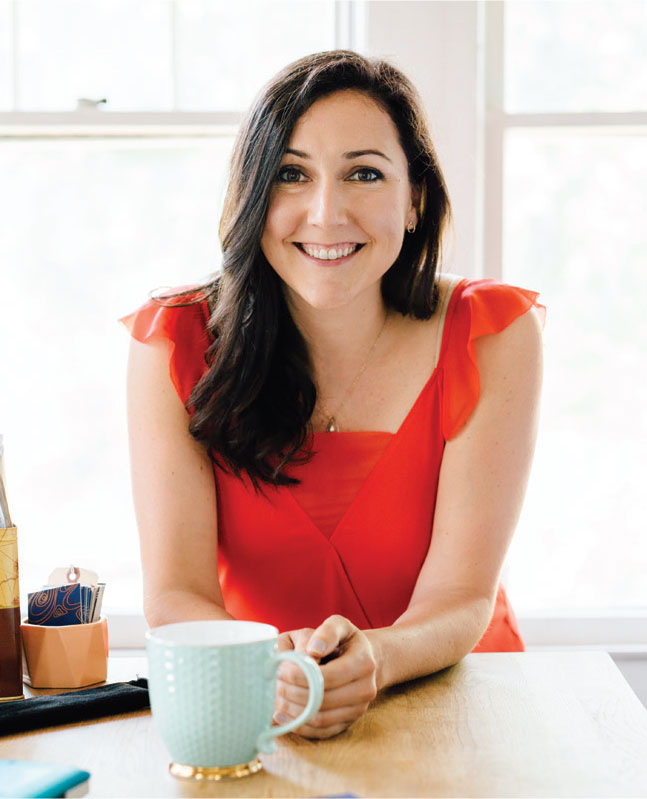
Anyone who doesn’t believe “man-splaining” is a thing should chat with Mollie Decktor. “I’m starting a bra business, and I’ve still had men try to explain my customer and their problems and challenges to me,” she says of her launch, mbody. In fact, the biggest stumbling block men have in supporting mbody, which uses 3-D scanning technology to create a custom-fit, is a complete lack of understanding of how bra shopping works. “None of these guys had ever been fitted for a bra,” Mollie says, “so they didn’t know that the standard practice is for a stranger to hold a measuring tape up to you, helping you into bras, telling you what fits and what doesn’t. By comparison, 3-D body scanning is much less invasive.”
It’s an idea supported by research that started as a class project while Mollie and partner Mark Adkins were MBA students at Vanderbilt. But research only goes so far, and building a prototype is capital-intensive. Says Mollie, “We’re begging, borrowing and stealing to get there.” Crowdfunding brought in $16,475—more than their $15,000 goal. With cash and a design team in place, Mollie plans to have a prototype scanning machine at her Nashville headquarters this fall.
Morton and Mabel – Stylish classic clothes for busy kids
Owner/Designer: Kate Brown

When Kate Brown saw the name iFundWomen, her instinct was to be a part of it. “My intuition was: This is what I want. Th is is what I need—a platform for women,” Kate says. So despite barely knowing what crowdfunding was, she leapt in to seek money for her fl edgling kids’ clothing line. Beyond the money, she found a support network that fi lled a void she’d long felt. “My mom was in and out of my life,” Kate says. “There’s always been something missing there.” She feels the lack of a maternal influence made it tough to use crowdfunding—and what drew her to iFundWomen. “I’ve always felt that being in charge was my role in life,” she says. “It is hard to ask people for money, growing up the way I did.”
The bond between parent and child—and her two children in particular—is the inspiration for her line, which focuses on pieces that are unisex, modest and stylish. They’re designed to grow with the child and go from playtime to dinnertime. Kate has few regrets, despite falling short of a fundraising goal that would have enabled her to travel the country showcasing her designs. “It was mildly embarrassing to put myself out there and not get all the funds,” she says, noting that the exposure the campaign brought is already drawing more fans—and helping her to gain a national audience.
Lemon Laine Carefully curated beauty product shop
Owner: Laura Lemon
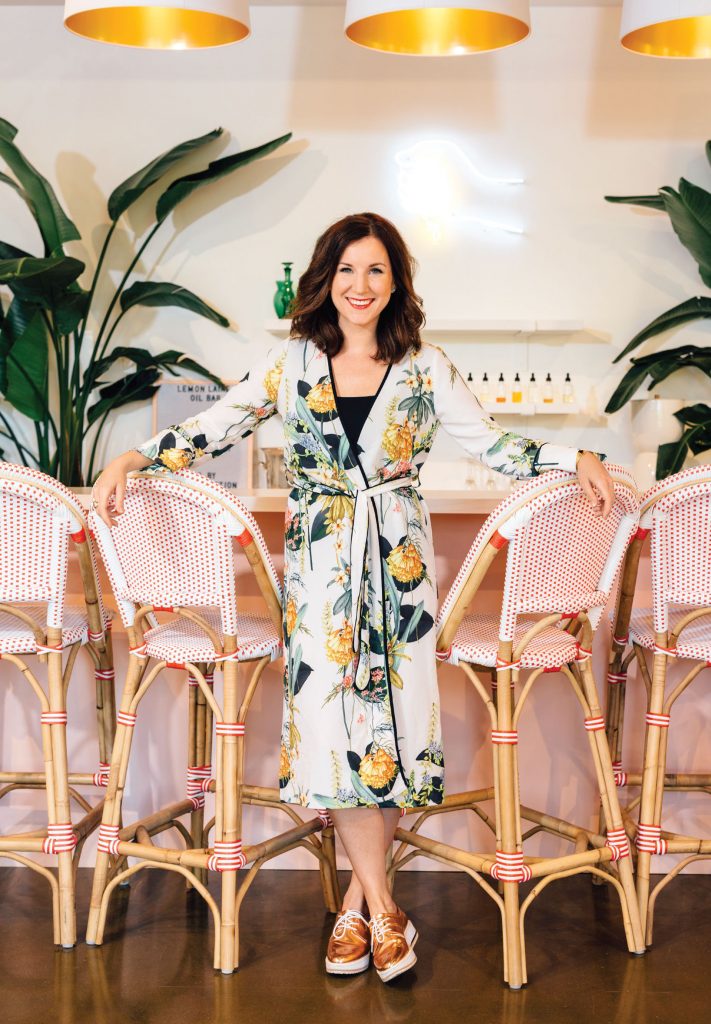
Laura Lemon moved to Nashville knowing exactly one person aside from her husband. Just seven months later, in May 2017, she opened the fi rst of what she hopes will be many branches of Lemon Laine, a retail outlet focusing on a carefully curated line of natural beauty products, with an eye toward simplifying the skincare shopping experience. Her friends weren’t surprised by the apparent breakneck speed of the enterprise; Laura comes from a long line of entrepreneurs and had been talking about opening her own store for years. “They were like, ‘thank goodness you’re finally doing it,’” she says with a laugh. “I think they wanted me to stop talking about it.”
Laura’s mother and stepfather own a graphic design business, so growing up, dinner conversations often revolved around the ups and downs of entrepreneurship. It rubbed off . “I always felt like I wanted to be empowered to succeed or fall on my face and have that in my own hands,” says Laura. Her 10 years of beauty experience as a makeup artist, beauty buyer, and product developer at a natural beauty company—along with an obsessive desire to find the most effective natural products—seems to resonate. “When you have a vision, it connects with people,” she says. “Women want to help you out— it doesn’t take much for them to get behind you and be your biggest cheerleader.”
Built By Stevie – Custom furniture in a male-dominated industry
Owner: Stevie Estler
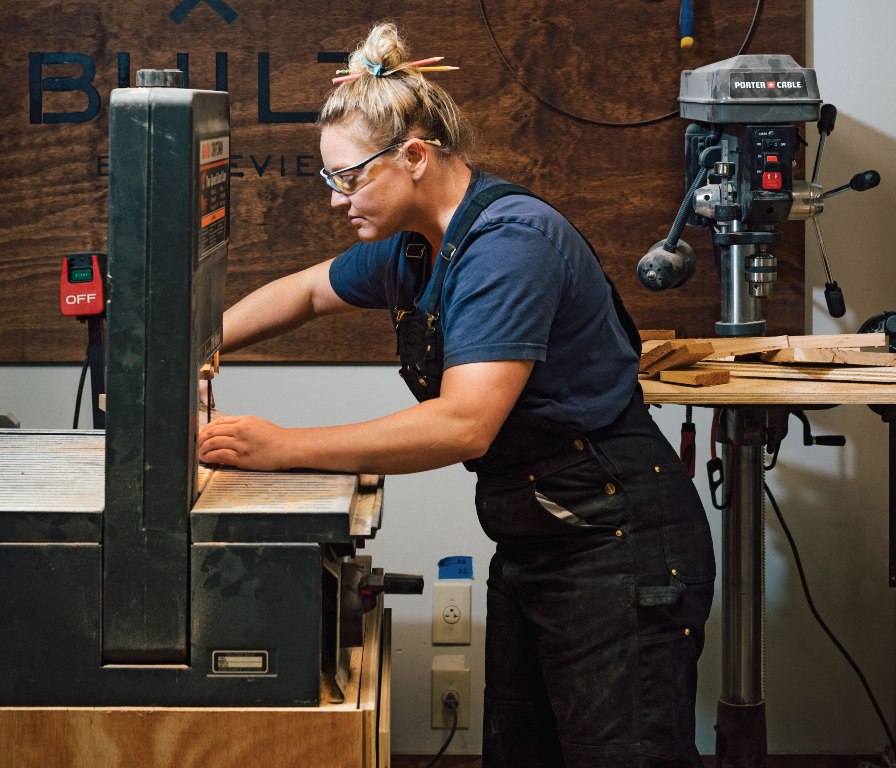
As a freshman in college, Stevie Estler asked for a drill for Christmas. Shortly after, she was building dorm-mates’ IKEA furniture and installing ceiling fans. “I’ve always been handy. If you show me how to do something once, I’m going to figure out how to do it faster and better,” Stevie says. Between those skills and the Internet, she furnished her entire four-bedroom house with hand-hewn pieces. “I literally Googled how to build a headboard,” Stevie says with a laugh. Now a version of that bed, called the “Simple Rustic,” is a top-selling staple of her custom furniture collection. Likewise, when her family was coming for a holiday visit, she Googled how to build a table to create a place for everyone to sit. It still stands in her dining room, and while she looks at it now and sees flaws and the ways she has grown as a craftsperson, no one else does. “My friends just see a cool table I built,” she says. “People love the idea that there is a female doing this.”
So much so that her iFundWomen campaign allowed her to branch out of strictly custom work and design a collection from her own vision. Stevie says being a female in a male-dominated industry is a blessing. “It opens doors. I’m breaking the mold,” she says. “Don’t get me wrong, sometimes I walk into a big lumber store and there is a line of men and I’m the only female. I was intimidated at first, but not anymore.”
Merry Beth Myrick Designs – Jewelry that empowers
Owner: Merry Beth Myrick
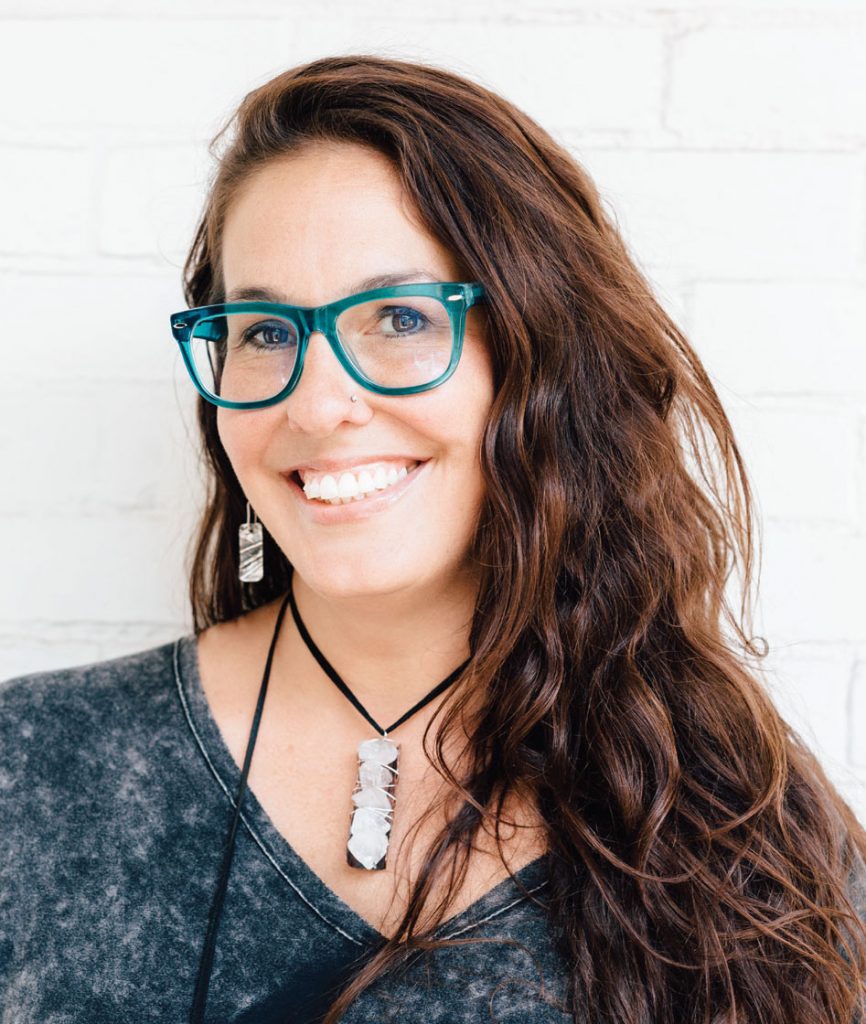
When Merry Beth Myrick discovered healing stones, it changed her world. Now she wants to do the same for women everywhere. “Even if you don’t believe in the power of the stones—their metaphysical properties,” she says, “if you are downand-out and someone gives you a necklace with a certain stone on it that is supposed to boost your energy, self-confidence, and love for yourself, I think there’s a placebo effect.” Her “Embrace” necklace, a cornerstone of the new collection funded through her iFundWomen campaign, features a tourmaline stone, thought to help people to accept themselves and reject the projections of others. It’s a pretty tall order for a stone, but its metaphysical mission resonates with Merry Beth. She’s been making a living from her jewelry business for six years, but was unsure of how to grow it. “I didn’t go to business school,” she says. “I went to design school. Who do I hire first to get to that next level?”
The entrepreneurs she’s met through iFundWomen and the intensive nature of running her first crowdfunding campaign has crystalized that, giving her the courage to ask for help and the capital needed for materials and equipment. Making that investment in herself was a hard step, but an important one. “I’ve never wanted people to think that I need them to take care of me,” Merry Beth says. “As a woman who wants to be independent, it’s more challenging to put myself out there.”
Tiramisu Paperie – Sassy greeting cards and jobs for people with special needs
Owner: Lisa Sarmento
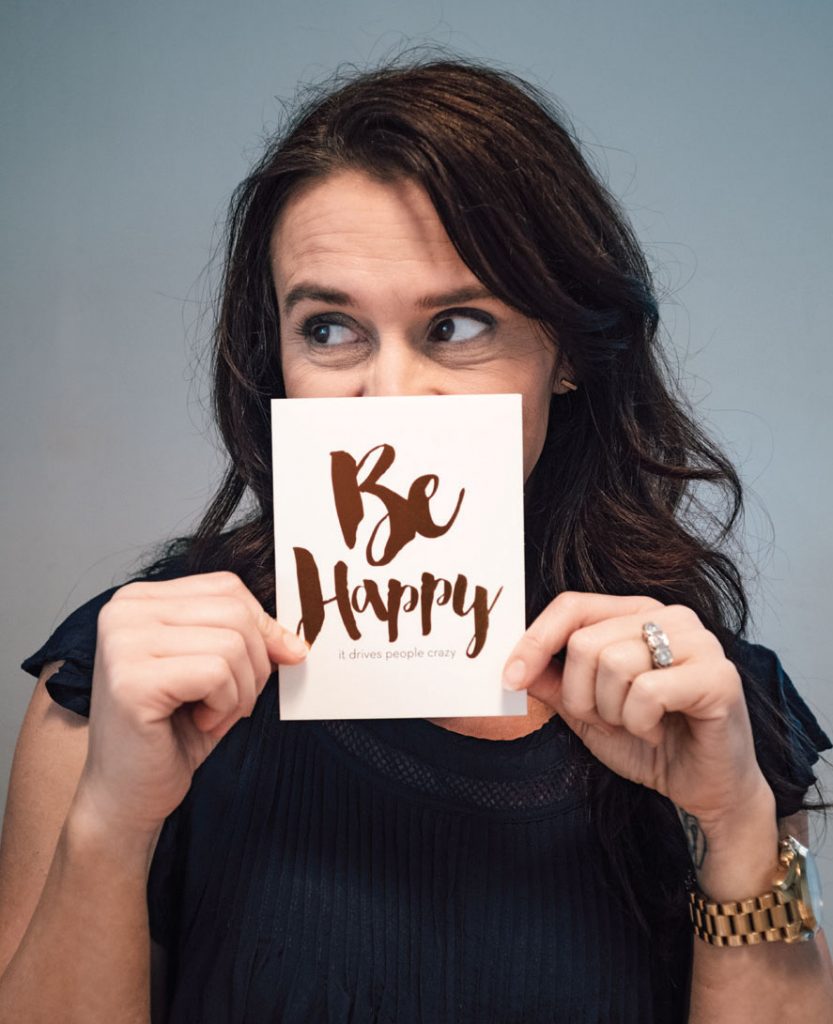
At just five feet tall, Lisa Sarmento is used to having to fi ght to be taken seriously. “My whole life, because I look younger than I am, people have treated me like a little girl,” she says. “It gets very frustrating at times, because I know my bottom line.” Th at’s thanks in part to her biggest role model—her mom, who opened a pair of hair salons on her own. “I saw her standing fi rm to push her business forward,” Lisa recalls. “I was blessed with a mother who taught me how to do that. And if I didn’t have that, I’d be even more frustrated.”
But because independence was ingrained, crowdfunding for her greeting card business— which specializes in sassy and sometimes off -color inspirations—was especially hard. “I hate asking for help,” Lisa admits, but her eyes are on a very big prize. Her 16-year-old son Michael, who is on the autism spectrum, will soon graduate from high school with few options. About 85 percent of adults with special needs are unemployed. “When I saw that Michael’s window after high school was so small, I was like, ‘Hell, no. I’m not going to let that happen,’ ” she says.
Funds from her campaign will help Lisa put together a framework for employing her son and other special needs adults in her shipping/packaging department, giving them a sense of purpose and a path to financial freedom.
Her Data Method – Teaching women how to employ customer data
Founders: Shannon Ware and Melody Jennings Bowers
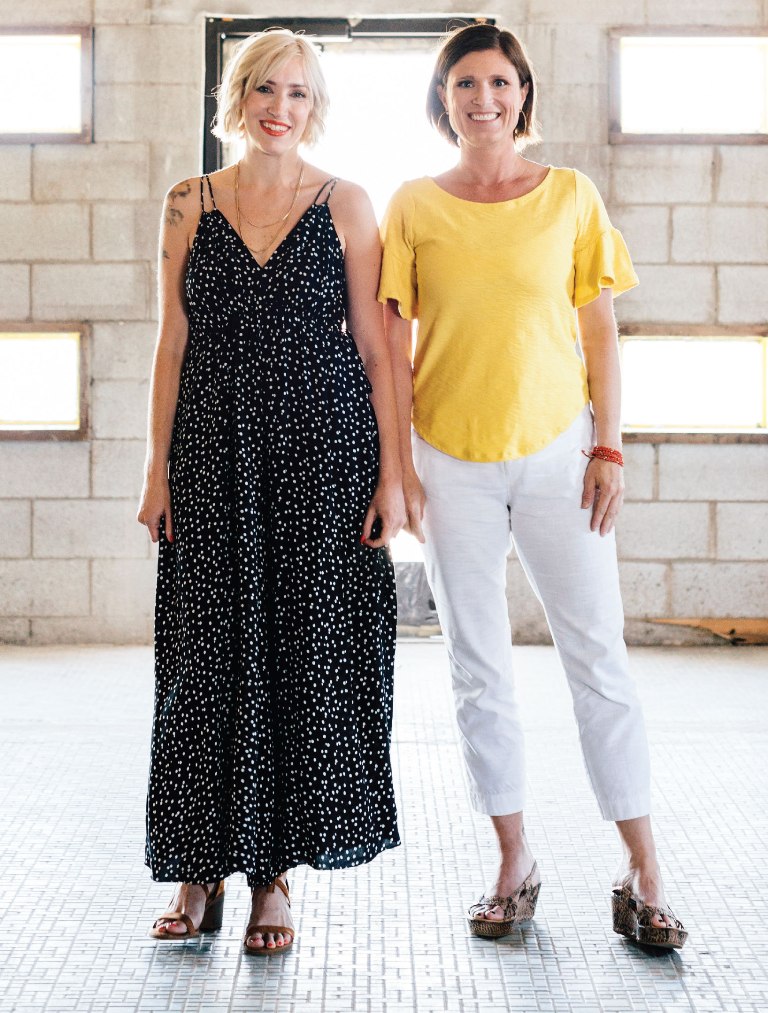
When working with clients at their marketing company, Virtual Collective, Shannon Ware and Melody Jennings Bowers kept running into the same problem: clients want a marketing plan but don’t really understand their customers. Time and again, the pair took clients by the hand and taught them how to collect and use customer data to target marketing more carefully.
While they’ve encountered plenty of men who need instruction, the problem was more pervasive with female clients— thus giving birth to their second business, an online course to teach women how to employ data. “If you can be aware and knowledgeable about numbers and your own data,” Melody says, “you can have more common ground with men and they take you more seriously.” The project was on the back burner for a long time—partly because there just aren’t enough hours in the day. But when the pair heard about iFundWomen, it lit a fire.
“As women business owners,” Melody says, “we are juggling so many things that we don’t stop to evaluate often enough what it is that we’ve done, where we’re going, what needs to change, what worked and what didn’t. We’re doing this around our jobs and our families. We have to work in the middle of the night. The world is not stopping for us and going ‘yay!’”




